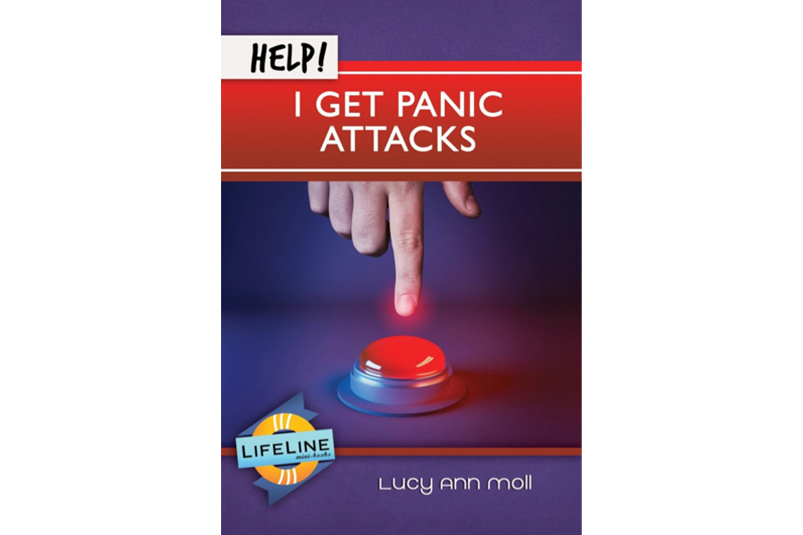
by Lucy | Dec 18, 2019 | biblical counseling, emotions
When Christmas cheer brings on isolating loneliness, how can your survive, even thrive?
This short article shows that you really can find God in your loneliness at Christmas! And it’s NOT another tiresome to-do list!
Loneliness at Christmas, or any time of the year, unsettles us. It’s uncomfortable and unwanted. It may drive us to seek false comforts: TV, Facebook, sleep, food, booze, sex. It often turns us inward, compounding the lonely ache in our hearts.
Consider Lydia Brownback’s description of loneliness at Christmas.
“Looks like winter is here!” Brownback called to the mom next door as she and her neighbors cleared their cars and walkways.
“Indeed it is!” the neighbor responded. “And the timing of all this snow is perfect. After supper we’re going to make hot chocolate and decorate the Christmas tree. The kids are really excited.” Picturing her neighbor spending quality time with family sparked a deep sense of loneliness in Brownback. She had no one to share the festivities with, and it hurt, she shared in her book, Finding God in My Loneliness.[1]
The good news is that when we seek God as our true treasure, we find what we’ve been looking for all along: Him.
What Is Loneliness?
Loneliness is “an emotionally painful sense of not being connected to others. The lonely person may feel unwanted, isolated, and left out.”[2] It is a pain of disconnect. It is not social isolation, per se.
There are many people who love their alone time and do not feel lonely. Rather, it is the distress of what one has and what one wants, played out in the arena of social relationships. David Powlison pinpointed this disconnect: “Fear and desire are two sides of the same coin. A sinful fear is a craving for something not to happen… If I long to be loved, I’m terrified of rejection. If I fear pain or hardship, I crave comfort and pleasure.”[3]
Loneliness Is Common
Married or single, young or old, male or female, counselor or counselee–we all have suffered this empty feeling of disconnectedness at some point. For some of us, it’s chronic and unrelenting. Loneliness may affect three out of four Americans, a 2018 survey reveals. And it’s bad for our health, social scientists claim.
Connecting through social media doesn’t help. In fact, it may worsen it. It appears that many people are substituting online connections for in-person connections.
What Does Loneliness Reveal?
The reason we feel lonely is God created us for community with Him and others. He fills the lonely ache in our heart.
Loneliness began in the Garden long ago when the first couple rebelled against God and looked for fulfillment apart from Him. Their sinful declaration of independence separated them from God and one another. It brought Adam and Eve fear, shame, guilt, and loneliness.
The good news is that God had a plan from the beginning to restore man to a personal relationship with Him. Indeed, God made us with the capacity for loneliness to point us to Him, and we find what our hearts desire only in Him.
“And in Him you have been made complete, and He is the head over all rule and authority” (Col. 2:10).
Man’s False Solutions
The earthly solutions for loneliness fail to bring real and lasting change. Among them are:
- baking another batch of holiday cookies
- jamming the calendar with activities
- scrolling Facebook and Instagram
- binging on Hallmark Christmas movies
When we choose our own solutions over God’s, our loneliness deepens. In contrast, God’s solutions for loneliness draw us to Him and others.
God’s True Solution
We were created for a deep, personal relationship with God that cannot be satisfied through work, hobbies, marriage, or anything else. Keeping our eyes focused on Jesus and serving others solves our loneliness problem. We must resist focusing inward when we feel disconnected.
To get to the root, the lonely person might seek the answers to these two questions:
- Who am I focusing on?
- What am I living for?
There are two choices: God or self. Matthew 10:39 clarifies our need for God’s remedy. It reads, “Whoever finds his life will lose it, and whoever loses his life for my sake will find it.”
With this in mind, we find God in our loneliness. We can admit that when we turn to our own solutions for loneliness, we are looking to self for completion. In addition, we can choose to seek to treasure Him above all.
Keep Doing These 4 Things
1. Spend time in the Word daily helps us know Him.
2. Prayer.
3. Attend a Bible-believing church allows us to hear the gospel preached and to know and serve other believers.
4. Intentionally serve others in our families and neighborhoods through volunteering. And volunteering need not be formal; simply listening deeply is a gift.
Most of all, we recognize that our loneliness is pointing us to God. So, during the holidays, when loneliness may become particularly painful, resist turning inward. Rather, let this unwanted feeling help you realize something’s missing. That something is found in Jesus alone.
Those who belong to Jesus are never truly alone. He has the remedy for loneliness at Christmas and all year long.
[1] Lydia Brownback, Finding God in My Loneliness, (Wheaton, IL: Crossway, 2017), 13.
[2] Mary Somerville, “Coping with Loneliness,” National Association of Nouthetic Counselors, Annual Conference, 2005, mp3.
[3] David Powlison, “Dynamics of Biblical Change,” class notes, Christian Education and Educational Foundation (CCEF), 2002. Quoted in Lydia Brownback, Finding God in My Loneliness, (Wheaton, IL: Crossway, 2017), 25.
This article appeared first here at The Biblical Counseling Coalition. Minor edits for space.

by Lucy | Nov 25, 2019 | biblical counseling, emotions, thoughts |
You need to repent of idols of the heart. Idols of the heart are ruling desires of your heart. Begin by identifying the heart with these two questions:
1. Is your desire, “Not my will, but yours be done” (Luke 22:42, NIV)?
2. Or does your cry sound more like demands for security, approval, comfort, and love?
When you want security, approval, comfort, and love, and get want you demand, pride will fill you. Underneath the veneer of pride and self-righteousness are emotions like anxiety, anger, and discouragement and actions like seething, shouting, nail-biting, insomnia, overeating, and self-loathing.
Just as the prodigal son demanded his way, just as the older son self-righteously sneered at his brother when he returned home, chances are you too have ruling desires of the heart that are unholy.
Pray and ask the Holy Spirit to reveal to you negative thoughts, critical speech, gossip, bitterness, immorality, and anything else that exposes a self-ruled heart.
You may want to jot down what the Holy Spirit reveals to you. What are the “rotten fruit” that expose the ruling desires of your heart?
Faithfully yours,
Lucy

by Lucy | Nov 7, 2019 | biblical counseling, emotions, thoughts
Jennifer asked me how to change her thoughts. She had spiraled deep into discouragement and wanted to feel like her old self: upbeat, positive, happy. “This isn’t me,” she shared. “I keep thinking negatively about everything over and over and over. I don’t know how to stop.”
In this article, you learn three new ways to think about your thoughts and learn how to stop life-sapping thinking:
- Ask yourself if your thoughts glorify God.
- Change the thoughts he wants you to change
- Take every thought captive.
1. Ask Yourself an Important Question
What you say to yourself matters. What you think becomes who you are. You want to think well, don’t you? Then you need to ask if your thoughts glorify God.
Words kill, words give life;
they’re either poison or fruit–
you choose. Prov. 18:21
A helpful place to begin is writing down your thoughts in a small, spiral notebook that’s easy to carry with you. When a negative thought pops up, write it down and note what was happening around the time of the thought. Do this for about three days. Don’t concern yourself with changing your thoughts at first. The point is to become aware of them.
You may become aware of thoughts you didn’t even know you were thinking!
Click & Tweet!
Do you say one of these uglies to yourself?
Very often women silently tell themselves things like:
- I’m such an idiot.
- No one likes me.
- I’m ugly.
- I can’t do anything right.
Did you have any of these thoughts?
Practical help: Review your list of thoughts. Which are the most common ones? When did you tend to have them? Are they glorifying to God? Jennifer had most of her automatic, negative thoughts in the morning before she got out of bed and asked God to show them to her. She wrote out Psalm 139:1-2:
Search me, O God, and know my heart;
test me and know my thoughts.
Point out anything in me that offends you,
and lead me along the path of everlasting life. Psalm 139:23-24
Like Jennifer, you can ask yourself whether your thoughts are glorifying to God.
2. Change Your Thoughts
Which thoughts is God nudging you to change? Not sure? You could measure your thoughts by the instruction of Philippians 4:8.
Finally, brothers, whatever is true, whatever is honorable, whatever is just, whatever is pure, whatever is lovely, whatever is commendable, if there is any excellence, if there is anything worthy of praise, think about these things.
Jennifer noted that one of her recurring thoughts was, “I’m never going to get better.” This thought is in opposition to “whatever is true.” As a Christian, Jennifer is promised by God to become more and more like Jesus Christ, who says “I came that they may have life and have it abundantly” (John 10:10b). This process is called “progressive sanctification.”
When she told herself this life-killing lie, her discouragement worsened. Has this happened to you too? Sadly, negative thinking begets negative emotions. Conversely, says Brian S. Borgman in Feelings and Faith, “Right thinking about God produces and cultivates godly emotions such as peace, joy confidence, and hope.”
You keep him in perfect peace
whose mind is stayed on you,
because he trusts in you. (Isaiah 26:3)
Practical step: Measure your thoughts against Phil. 4:8 and ask God which one you need to change.
3. Take Every Thought Captive
God wants you to walk in the truth. You Enemy has a game plan to get you to believe lies
Click & Tweet!
— lies about yourself, about your circumstances, and about the Gospel.
We destroy arguments and every lofty opinion raised against the knowledge of God, and take every thought captive to obey Christ. (2 Corinthians 10:5)
To take every thought captive to obey Christ, you need to replace the lies with the truth. Go through the list of thoughts you wrote down. For each one that is not true, honorable, just, pure, lovely, or commendable, find a Bible verse that replaces the lie with the truth. Jot down the Bible verses you’ve found on index cards or sticky notes.
Yes, it is work to find life-giving Bible verses and write them on card or notes but well worth it. Do you think that looking up verses isn’t worth the effort? Do you have other obstacles? What are they? Why not discuss them with a trusted Christian friend?
2 examples to get you get you started.
Life-sapping thought: God doesn’t love me. He doesn’t care.
Life-giving truth: “For while we were still weak, at the right time Christ died for the ungodly. For one will scarcely die for a righteous person—though perhaps for a good person one would dare even to die—but God shows his love for us in that while we were still sinners, Christ died for us.” Romans 5:6-8
Life-sapping thought: Life must go well for me. If it doesn’t, this proves I’m a worthless loser.
Life-giving truth: “Not that I am speaking of being in need, for I have learned in whatever situation I am to be content. I know how to be brought low, and I know how to abound. In any and every circumstance, I have learned the secret of facing plenty and hunger, abundance and need. I can do all things through him who strengthens me.” Philippians 4:11-13.
Practical help: Each time your have a negative, life-sapping thought, read the index card or sticky note you made with the life-giving truth. As you repeat this process of taking every thought captive to obey Christ, you will discover that the negative thoughts diminish in frequency and power.
This was Jennifer’s discovery. As she read John 10:10 each time she thought “I’m never going to get better,” she noticed that she thought it less often and she experienced hope and joy. She’s applying the same process to other life-sapping thoughts she has. Her discouragement if lifting. She’s beginning to feel like her old self.
And it all began with thinking about her thoughts. Do you want to replace your negative thoughts too? May I invite you to contact me? We can set up a time to talk on the phone for a free 15-minute consult. I also have a downloadable ebook you make like — “Transform Your Thoughts Journal.”

by Lucy | Oct 8, 2019 | biblical counseling, emotions
In this article, I talk about victory over panic attacks and share an excerpt from my new book HELP! I Get Panic Attacks, available as a paperback and in Kindle. If you or a loved one gets panic attacks, learn how to find increasing victory and make progress even when panic attacks seem to have the upper hand.
This article appeared here at Biblical Counseling Center, where I’m on staff and offer counseling by video-conferencing worldwide.

What? A biblical counselor who gets panic attacks? Yes, panic attacks can happen even to faithful Christians. I had full-blown, heart-pounding panic on and off for many years, though now this experience is rare for me.
In HELP! I Get Panic Attacks I share how my panic attacks began along with God’s solutions and practical assignments for you to use. The mini-book just came out this month and is available at Amazon and Shepherd Press. I wrote it to help panic attack sufferers (and their loved ones) know that there really is freedom from the terror that interferes with normal life and kills hope. There’s also a short section on the use of medication, reviewed by a medical doctor.
Here’s an excerpt. I hope it helps you. Please feel free to contact me with your questions.
My panic attacks started with a job promotion
My panic attacks started with a job promotion. When I became the new managing editor of a health and food magazine, Suzy, whom I replaced, advanced to the role of executive editor. This was a happy day for both of us, right? Wrong! On promotion day, Suzy gave me unsettling, steely stares all day.
Did I do something wrong? Why is she acting so weird? Does she hate me? Will I lose my dream job already?
Confused, hurt, and fearing Suzy’s disapproval, I practically sprinted from the office at 5 p.m. Once behind the wheel of my blue hatchback, I cranked up the tunes and zoomed toward the six-lane freeway that would take me to my “safe place”: a cozy Cape Cod house that I shared with my husband, Steve, and our fluffy feline. Like Dorothy in The Wizard of Oz, I repeated, “There’s no place like home. There’s no place like home.”
As I drove, I tried to forget Suzy’s disapproving stares, but they stuck in my head like superglue. Then, suddenly, seemingly out of nowhere, my heart beat triple-time. Sweat beaded on my forehead. I swallowed a lump in my throat. My knees became wobbly, like Jell-O. A horrific sense of impending doom settled on me. Then my mind went wacko as I came to a tight curve: Drive into the ditch, Lucy. Drive into the ditch. Drive into the ditch. In panicky desperation, I spoke back to the crazy thoughts filling my mind: What’s wrong with me? Dear God, am I suicidal? Stay on the highway, Lucy. Just stay on the highway. Your exit is a mile ahead. You can make it. You can make it. What’s wrong with me? God, help me!
Panic attacks are terrifying. But you already know this, since you picked up this mini-book. If you don’t experience them yourself, you’re surely aware of how they affect someone you know. As I share my story and the extreme fear experiences of a few others, I want to help you understand three truths that have helped me.
3 truths that helped me
First, you are not the only one who struggles with panic attacks.
No temptation has overtaken you that is not common to man. (1 Corinthians 10:13)
This Bible verse teaches that we all struggle, including those of us who are “fearful”—that is, who have a propensity for anxiety. The intensity and frequency of our fears may differ, but everyone at some point has freaked out.
Second, panic attacks often proceed from faulty thinking. But by God’s grace, you can change fearful thinking patterns into God-transformed, faithful thinking. This will require a willingness to trust and obey God, as well as perseverance. Your faulty thinking didn’t develop overnight, so it most likely won’t go away overnight. Mine didn’t.
Third, God promises to help you overcome the fear that precipitates your panic attacks, assuming they don’t have an organic, physical cause (more on this later). When you learn to realign your thoughts with God’s thoughts, your panic attacks can become a thing of the past. This is hopeful, isn’t it?
God can also use your panic attacks for good
God can also use your panic attacks for good. Like me, you might begin encouraging others who have panic attacks by listening to them and by sharing your story. This verse in 2 Corinthians is dear to my heart because it gives meaning to my struggle, and I hope it will help you too:
Blessed be the God and Father of our Lord Jesus Christ, the Father of mercies and God of all comfort, who comforts us in all our affliction, so that we may be able to comfort those who are in any affliction, with the comfort with which we ourselves are comforted by God. (2 Corinthians 1:3–4)
Perhaps this is difficult for you to believe, but God knows your fears and is able to deliver you from all of them. As you read this mini-book, you will learn practical ways to turn fear into faith. Will it be easy? No. It will require diligent effort. Will it be worth it? Yes. Your fears are one means God can use to help you learn to trust him and depend on him. Addressed biblically, they can become a doorway to experiencing the peace of God which comes through the Prince of Peace who conquers fear.


by Lucy | Sep 11, 2019 | biblical counseling, emotions |
FEAR. It’s the new four-letter word. It began long, long before 9/11, school shootings, and the controversy over our current president. Flip through the first pages of the Bible, and see its ugliness from the Fall to today.
In this brief article, you’ll discover:
- Fear often has its start in childhood.
- There’s a biblical solution to fear.
Fear usually begins early.
When fear begins early, it often takes on one of two main forms. For women: fear of rejection and abandonment creeps For men: the fear of failure.

For me, my fear of rejection goes back to my childhood. My mom was often sad and chain-smoked. And my dad was present physically but absent emotionally. And so, like many of my counselees, seeds of difficulty began sprouting early. We biblical counselors call these “sharing influences.” Yes, these shape our thoughts, emotions, and actions. However, they do not determine them.
My dad didn’t do anything horrible to me. He just didn’t notice me, really. And he never smiled. But I hoped to make him happy. In fact, I longed for his acceptance.
What about you? What triggered your fear of abandonment?
Click & Tweet!
When we try to control fear, it’s likely we’ll feel discouraged.
We each have ways of handling fear, right? But our solutions usually backfire.
My well-meant but messed-up solution: control. I attepted to control my to try to control him by being the perfect little girl who never got in trouble and brought home excellent report cards and who did everything right.
I didn’t.
I couldn’t.
And I felt sad.
Only much later did I learn he suffer manic-depression. Still, my fear of abandonment lingered.
God provides a better way.
God wants you to experience success, according to His definition. That is, he wants you to become more like Christ. God has planned that those who love Him “be conformed to the likeness of His Son” (Romans 8:29). Since Jesus is in us, and we in Him, we have confidence that no matter what happens–a home foreclosure, a child’s bad report card, illness, even the death of a loved one–He is with us and helps us.
Please know that everyone struggles with fear. You are not alone. Learning to defeat fear requires a shift in focus. So rather than focus on self, love God and love people more than their approval.
So now what?
- Recognize God is sovereign over your fears. He knows your struggle and helps you. So look to Him. Jesus lovingly commands, “But seek first His kingdom and His righteousness, and all these things will be given to you as well. Therefore do not worry. . .” (Matthew 6:33-34a).
- Choose to love people more than their approval. The apostle Paul wrote, “Am I now trying to win the approval of men, or of God? Or am I trying to please men? If I were still trying to please men, I would not be a servant of Christ” (Galatians 1:10).
Please remember that becoming more like Christ is a life-long process. Keep taking one step then another.
AN OFFER: I meet with women nearly every day by Skype/FaceTime/Zoom and help them find godly solutions to the problems they face. If you’d like a complimentary phone consult to see if biblical counseling is a good fit for you, simply contact me. NO spam, promise.


by Lucy | Aug 19, 2019 | biblical counseling, emotions, relationships
True happiness! Did you know that God made your brain in such a way that you can have this true happiness every day?
Many believers are taught that God wants us to be holy but not happy and that joy and happiness are fundamentally different. We’ve even been left with the impression that God himself isn’t happpy. Yet nothing could be further from the truth!
So says Christian author Randy Alcorn in his book Happiness.
If you’d like true happiness, consider these three parts of getting from where you’re at to where God wants you to be.
- Your thoughts make THE difference.
- Creating your own on-going happiness.
- Take the 3-minute focus challenge.
As you think healthy, godly thoughts, these new positive thoughts rewire your brain. Over time as they are repeated, your new thoughts become automatic positive thoughts that replace your old automatic negative thoughts. As your thoughts change so do your emotions. By the way, my popular “Transform Your Thoughts e-Journal” helps you learn to change your thoughts resulting in improved, godly emotions. Get it here.
Your thoughts make THE difference
Late last century, scientists began proving what God knew all along:
What you think every moment of every day deeply affects you.
Your mind is designed to control the body. Not the other way around.
While you and I cannot control the circumstances of life, we can control our response.
Neuroscientific research underscores the truth of this verse:
As a man thinks, so is he.” Proverbs 23:7
Crazy as it may sound, your thought life may contribute to 75 to 98 percent of mental, physical, and behavioral illness, says Dr. Caroline Leaf, a specialist in traumatic brain injuries and learning disabilities, and author of several books including Switch on Your Brain (Baker Books, 2013). Our bodies and minds are always interacting. One affects the other.
Our Great Physician has a remedy. Call it the 4:8 prescription, if you like.
Finally, brothers and sisters, whatever is true, whatever is noble,
whatever is right, whatever is pure, whatever is lovely, whatever is admirable
—if anything is excellent or praiseworthy—think about such things.
Philippians 4:8
True, noble, right, pure, lovely, admirable, excellent, praiseworthy — this is where God wants your focus. And isn’t God alone truly praiseworthy?
Creating On-Going Happiness
 As you think about “such things,” you experience a peace and contentment, which the average Joanne describes as happiness. In his letter to his like-minded Christians in Philippi, the apostle Paul said, “Whatever you have learned or received or heard from me, or seen in me—put it into practice. And the God of peace will be with you.” He encouraged them to follow his path to peace and contentment.
As you think about “such things,” you experience a peace and contentment, which the average Joanne describes as happiness. In his letter to his like-minded Christians in Philippi, the apostle Paul said, “Whatever you have learned or received or heard from me, or seen in me—put it into practice. And the God of peace will be with you.” He encouraged them to follow his path to peace and contentment.
More great news: You can observe your thoughts and make decisions about them! Yes, you can become aware of what you’re thinking and choose healthy thoughts leading to happiness. As one friend likes to say: Respond thoughtfully, don’t react emotionally.
Click & Tweet!
Make no mistake. A happy life of contentment isn’t comfort. Choosing Jesus first is outrageously uncomfortable yet always the pathway to true happiness.
Click & Tweet!
CHALLENGE: 3-Minute Thought Focus
Important to a happy life of contentment in Christ is tuning in to your negative self-talk so you can identify it as decrepit. Then you change it to positive inner thoughts. Here are three steps
First do this:
- Find a quiet place to sit, and take two or three deep breaths. Feel your body begin to relax.
- For a minute or two minutes, tune in to your self-talk. What are you saying to yourself? Jot down a few of your thoughts.
Now do this:
- Ask yourself, Is my thought negative?
- Then ask, What positive 4:8 thought can replace this negative thought? Write it down.
EXAMPLE:
Negative thought: “My boss is a jerk. She says I can’t do anything right!”
4:8 thought: “I choose to work hard even though my boss is inconsiderate. I know God is with me and gives me wisdom in handling this work relationship, so I trust him.”
During the rest of the day:
Every time you have the negative job thought, replace it with the positive 4:8 thought.
Happy on Repeat!
As you replace your negative thought with the new positive, God-honoring thought, your brain makes new neural pathways, researchers have found. Just think–by improving the environment of your inner thought life, you’ll experience peace, contentment, and, yes, happiness.
If you need help with this, let me know. I’ve been counseling women and families by the effective, comforting promises and truth of the Bible since 2008 by online video worldwide.











